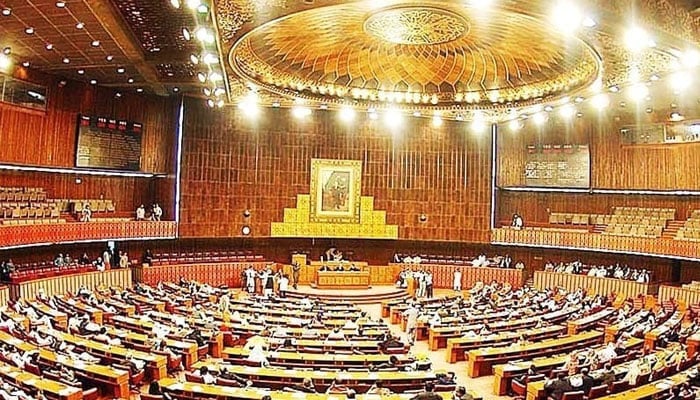SPECIAL REPORT
ISLAMABAD: The National Assembly Standing Committee on Finance and Revenue held on Thursday under the chairmanship of Hon. Syed Naveed Qamar at Parliament House . The agenda included a briefing by the Federal Finance Minister on several critical financial matters, including the IMF program, debt profiling, mutual funds, and national savings.
In light of the delicate nature of the IMF program, the initial briefing was held behind closed doors. The Minister of State provided an in-depth report on the country’s mounting public debt, revealing a concerning figure: as of June 2024, total public debt had surged to PKR 71.2 trillion. This comprises PKR 47.2 trillion in domestic debt and PKR 24.1 trillion in external debt.
The staggering rise in debt was a key focus of the meeting, with committee members expressing serious concerns about the sustainability of Pakistan’s borrowing practices. The Minister detailed the sources of external debt, naming Saudi Arabia, Australia, China, and Russia as major lenders, and provided an update on the nation’s foreign exchange reserves. He assured the committee that the government was implementing a robust debt management plan alongside structural reforms aimed at broadening the tax base.
However, the rapid increase in debt prompted tough questions from committee members about loan conditions, the long-term economic impact, and whether current measures were sufficient to address the fiscal deficit. The committee emphasized the need for clear strategies to manage the growing debt burden.
While the committee acknowledged certain efforts by the government, concerns were raised over the recent tax reforms that have sparked unrest among traders. It was agreed that a separate meeting would be arranged to foster dialogue between traders and the government to resolve these issues.
The agenda item concerning mutual funds was deferred due to the absence of the Chairman of the Securities and Exchange Commission. The committee expressed displeasure over the lack of engagement from key institutions and stressed the importance of their active participation in such critical forums.
The Director General of the Central Directorate of National Savings (CDNS) gave a briefing on the organization’s operations. With 370 centers nationwide and 3 million clients, CDNS offers 14 savings products, including Defence Saving Certificates and Bahbood Saving Certificates. The committee advocated for higher savings rates and the introduction of new instruments to encourage public savings, stressing the need for a strategic approach to bolster national savings.
The meeting concluded with a commitment to continued dialogue between the government and stakeholders to improve fiscal discipline and ensure economic stability in the face of rising debt.


